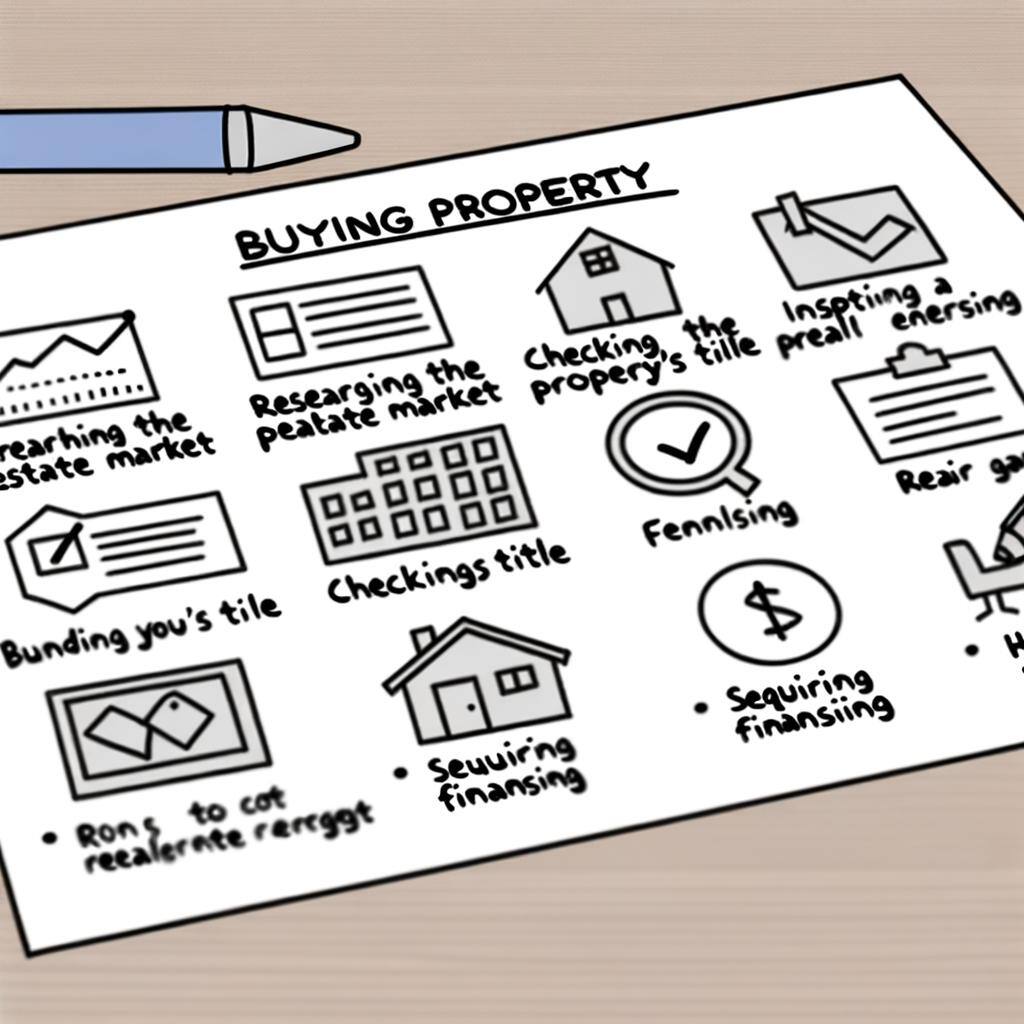How to Buy Turnkey Rental Properties
Turnkey rentals are among the best real estate investments, whether you’re looking for a beginner-friendly investing strategy or aiming to add...
6 min read
Rent To Retirement : May 27, 2024 9:57:00 AM

Are you considering buying your first rental property? Before you purchase this type of real estate, you should have in-depth knowledge of property management, mortgage loans, and leasing. While real estate investments can improve the value of any portfolio, there are certain challenges you must know how to navigate. Here's how to buy your first rental property in 2024!
Purchasing rental properties to add to your investment portfolio is an effective way to generate wealth and build income. If you hire a property management company to collect rent and screen tenants, you can even earn passive income! There are numerous reasons why investors purchase rental properties, including ample tax benefits and more financial freedom.
If you buy a rental and hire a property management company to oversee it, you can earn truly passive income. The property manager will take care of all the tasks needed to maintain the rental. For example, they'll schedule repairs, screen tenants, collect rent payments, handle complaints, and perform marketing for the property. The passive income you earn from your first rental can help you make additional investments or save for retirement.
Once you invest in a property and start renting it out, you'll earn cash flow, which you can use to pay the mortgage and cover the property management costs. However, the profit you make allows you to build toward financial freedom. Over time, you can invest in enough rental properties to gain financial freedom and replace your full-time income completely.
Investing in real estate gives you access to numerous tax benefits, such as depreciation, interest write-offs, etc. Even though you'll still need to pay income taxes, you can substantially reduce the amount you owe by claiming tax breaks like:
While stock investments have their advantages, they are often riskier than buying rental properties. You can buy an entire house with just 20% down. You can't do that with stocks! The 20% investment property down payment you make will then be available to you in the form of equity.
Want to invest in turnkey rentals for ultimate passive income?
Purchasing your first rental property is a fantastic way to diversify your portfolio and build your wealth. Use the following guidelines to simplify this process and purchase the right property.
Before making any type of real estate investment, you need to know your end goal. Why are you investing in real estate? If you want passive income, rental real estate investments can help you achieve your goal. Many investors funnel the income from their properties into retirement accounts. You could also focus on building generational wealth or using the income as fun money that pays for vacations and other recreational activities.
Once you understand why you're investing, it's time to get your finances in order. Pay off any bad debts you have, which include personal loans and high-interest credit cards. Create a comprehensive budget that can help you control your spending. Regardless of how soon you expect to invest in a rental property, you should start building an emergency cash reserve for unexpected expenses.
By getting your finances in order, your credit score should increase, which will allow you to finance your property at an even lower interest rate. Check your credit report for inaccuracies. Any mistakes could harm your creditworthiness.
The area you invest in can make a big difference in how well the property performs. Some parts of the country offer cash flow, while others provide appreciation. You can also find locations where properties can provide high cash flow and appreciation.
Now that you know what you want, you can find the perfect area to invest in. A general rule of real estate investing is that proximity to appealing locations (good schools, amenities, jobs, etc.) will help with value and demand, which makes it easier for owners to increase rent.
Before you invest, it's important to know what the life of a landlord really looks like. Attend local real estate meetups, or feel free to schedule a call with the Rent to Retirement team. While a property manager can reduce your workload, knowing what to expect when you become a landlord should help you minimize your mistakes.
Real estate investing comes with its own lingo that you'll want to know before making an offer. There are numerous financial metrics that'll be thrown your way, the primary of which include cap rate, monthly cash flow, and cash-on-cash return. Understanding these metrics can help you estimate how profitable your property will be. It should also allow you to identify properties that might not be good investments.
Once you've done everything you can to prepare for buying a rental property, you should begin searching for the right one. You can buy your first rental property in six simple steps.
The first step to buying a rental is to look at properties. The primary factors you should consider when searching for the best rentals include the following:
Do your research. You need to be confident that the rental property you're making an offer on will perform well and have low vacancy rates.
Unless you already have a large sum of savings in your bank account, you need to save up for a down payment. The usual amount is around 20%- 25% down. If you want higher cash flow, your goal should be to have a lower monthly mortgage payment. Making a higher down payment can effectively reduce your mortgage payment.
Did you know Rent to Retirement offers investor loans with as little as 5% down?
Speak with a lender or mortgage broker to learn more about your financing options and get a better idea of what your monthly payment will be. Ask for quotes from multiple lenders before choosing a loan. Each type of loan has pros and cons that you need to weigh. Rent to Retirement has relationships with lenders ready to help you invest! Book a call here!
A rental property is only valuable for your portfolio if you earn enough income and build positive cash flow. You can accurately estimate how much money you'll make from a property by completing some basic calculations. Before you buy, try our free Rental Calculator on your next potential deal. Look for a low-maintenance property in an area with limited vacancies. Calculate your potential ROI and expenses early on.
Now it's time to make an offer! While you should know how much you can afford based on the preapproval letter you received from your lender, this doesn't determine how much you should offer. Analyze factors in the area like population and job growth. Consider the projected return on investment, comparable properties, and rent price growth. Before signing an agreement, review the contingencies.
If the seller accepts your offer, all that's left to do is wait for your loan to be underwritten and the transaction to close. During this time, you should hire a property manager. After the transaction closes, you can start collecting rent immediately!
Purchasing your first rental property is the initial step in creating a valuable and diverse investment portfolio. Once you buy several properties, you'll start earning serious passive income. By following this guide, you should be able to purchase an investment property that will help you garner long-term success as a real estate investor.
Take the first step by viewing turnkey rental properties for sale.
The money you spend to buy your first investment property can be separated into closing costs and a down payment. To purchase a rental property, you'll need to make a down payment of usually at least 20%. You can expect to pay around 3%-6% in closing costs, which include everything from the appraisal fee to the loan-origination charge. If you're buying a rental that's listed at $300,000, your upfront costs can range from $69,000-$78,000.
You can avoid making a 20% down payment on an investment property by taking a different approach to securing funding. Consider a portfolio loan for a less traditional mortgage. This type of loan has more flexible down payment requirements. Some lenders offer mortgage insurance, which allows you to obtain a loan with a down payment that's less than 20%. Rent to Retirement even offers 5% down investor loans. Book a call today to hear about our lending options!
The 1% rule states that your monthly rent needs to be 1% or more of the rental's total purchase price. If you buy a property for $200,000, you must collect $2,000 in monthly rent. This rule is relatively outdated and is not a set-in-stone standard.
Armed with a comprehensive understanding of the intricacies of acquiring investment properties and a robust plan at their disposal, budding real estate investors can confidently embark on their venture into the realm of turnkey real estate investment in 2024 and beyond. For deeper insights into the domain of real estate investing, delve into Rent to Retirement's turnkey real estate offerings.

Turnkey rentals are among the best real estate investments, whether you’re looking for a beginner-friendly investing strategy or aiming to add...

When you're searching for a strategy that will help you save for retirement and build your wealth, look no further than real estate investing. If you...
While "turnkey" has several different meanings depending on the situation it's used in, turnkey properties are almost always move-in ready. If you...